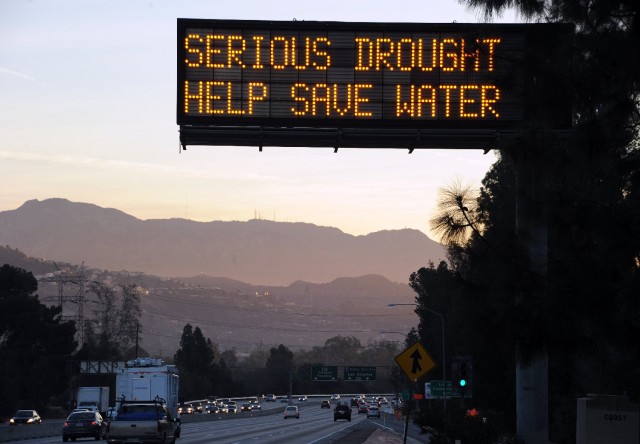Gov. Jerry Brown last month declared California's drought emergency, and both state and federal officials have pledged millions of dollars to help with water conservation and food banks for those put out of work by the drought.
California officials who manage the State Water Project, the state's other major water system, have already said they won't be releasing any water for farmers, marking a first in its 54-year history.
In 2009, the dry weather caused federal authorities to announce many Central Valley farmers would receive no water, but the wet weather that followed moved that up to 10 percent. Ryan Jacobsen of the Fresno County Farm Bureau said no Fresno County farmers were spared of bad news this time, marking a sad historical first. Fresno County leads the nation in agriculture production with $6.6 billion in annual economic activity.
There's still time for the situation to improve. By late Wednesday, the National Weather Service expects a storm to sweep through the region bringing significant showers. The weather is expected to break Thursday with rain continuing Friday and Saturday. The state needs a succession of storms dumping mountain snow, said Pete Lucero of the Bureau of Reclamation. "Rain is nice, but snow is where the money is," he said.
Gayle Holman of the Fresno-based Westlands Water District, the nation's largest supplier of water for agricultural use, said she fears farmers will be stuck with no increases to the federal water distribution. The district had been preparing farmers for Friday's announcement.
"They're all on pins and needles trying to figure out how they're going to get through this," Holman said, adding that Westland's 700 farmers will choose to leave fields unplanted, draw water from wells or pay top dollar for water that's on the market. "We would need those buckets of rain now."
Farmers are hit hardest, but they're not alone. Contractors that provide cities with water can expect to receive half of their usual amount, the Bureau said, and wildlife refuges that need water flows in rivers to protect endangered fish will receive 40 percent of their contracted supply.
Contractors that provide farmers with water and hold historic agreements giving them senior rights will receive 40 percent of their normal supplies. Some contracts date back over a century and guarantee that farmers will receive at least 75 percent of their water.
One of those is the San Joaquin River Exchange Contractors Water Authority in Los Banos that provides irrigation for 240,000 acres of farmland.
The Water Authority's executive director Steve Chedester said farmers he serves understand that the reality of California's drought means it's going to be tough to find enough water for them. "They're taking a very practical approach," he said. "If it's not there, it's just not there."
